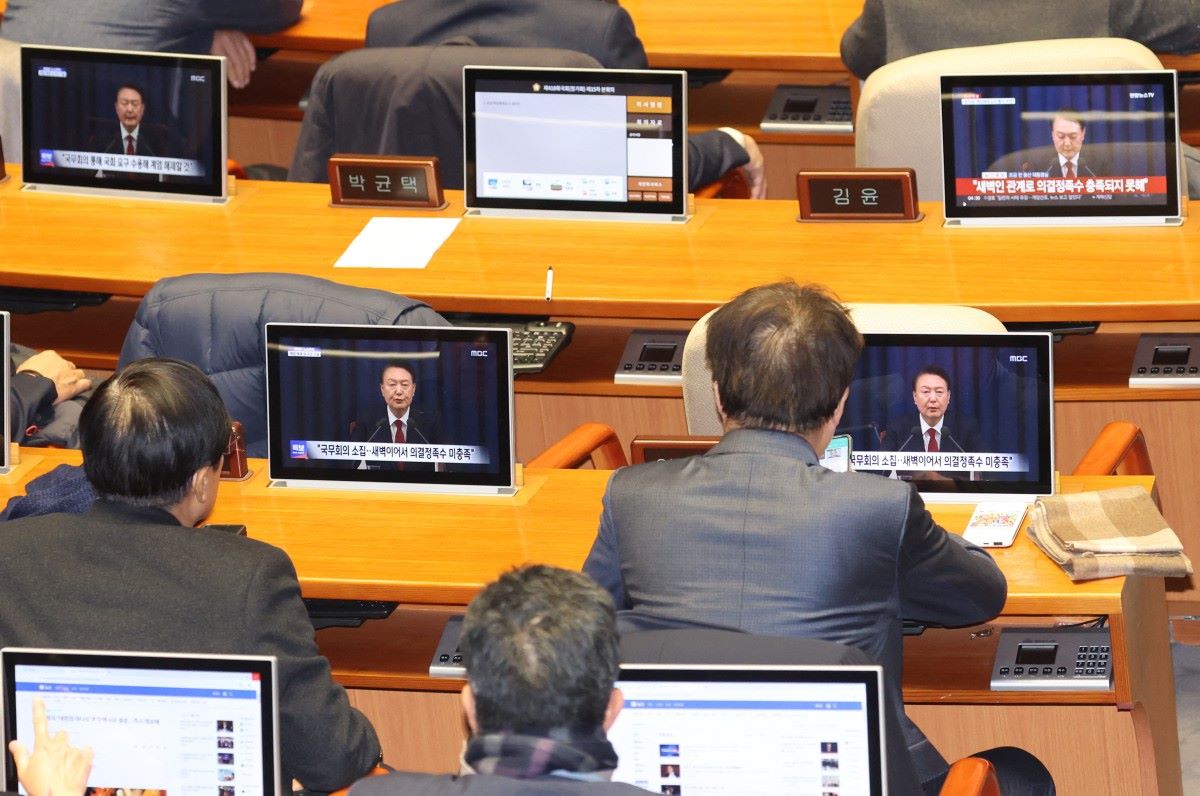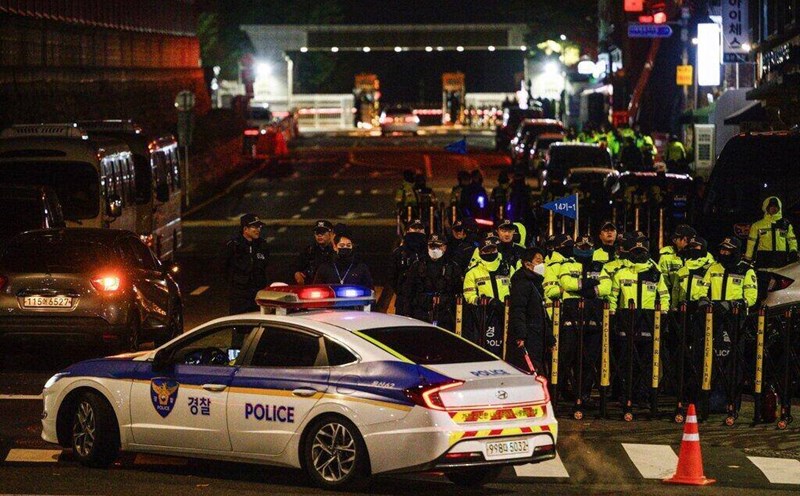Opposition lawmakers accused President Yoon Suk Yeol of violating his constitutional duties and committing a crime tantamount to treason when he declared martial law on the night of December 3.
President Yoon Suk Yeol lifted martial law in the early hours of December 4, just hours after the opposition-controlled parliament rejected the martial law.
Reuters details the impeachment process of the president and former South Korean presidents who have been impeached.
Provisions in the Constitution
South Korea's constitution stipulates that parliament can move to impeach the president or other senior public officials if they are found to have "violated the Constitution or any law in the course of performing their official duties."
To impeach a president requires a majority vote, equivalent to two-thirds of the members of a single house of congress.
The Constitutional Court conducts a hearing to confirm or reject the impeachment motion, hearing evidence from parliament to determine whether the president violated the law.
Opposition votes
The National Assembly is currently controlled by the main opposition Democratic Party, which has vowed to impeach the president. The Democrats and other smaller parties have 192 seats, short of the 200 needed to impeach the president.
Some members of Mr. Yoon’s ruling People’s Power Party have strongly opposed his declaration of martial law, but it is unclear how many of them would join the opposition if the impeachment proposal comes to a vote.
Mr Yoon has faced calls for impeachment and a special investigation into the scandal involving his wife.

Is a congressional vote all that is needed?
If parliament votes to impeach, the president will be suspended from exercising his powers until the outcome of the impeachment trial held by the Constitutional Court. The prime minister will then act as acting president.
The Constitutional Court will hear arguments from the chair of the parliamentary justice committee and from public officials or their legal advisers.
The court has up to six months to confirm or reject the impeachment, requiring the votes of six of the nine justices.
The Constitutional Court currently has six sitting judges, with three vacancies. It has dropped the requirement that seven judges be required to hear cases, but it is unclear whether it would accept impeachment without a full nine.
What if the president is removed from office?
A new presidential election must be held within 60 days.
The same would apply if Mr Yoon resigns. The prime minister would then take over as acting president and a new election would be held within 60 days.
In May 2017, a presidential election was held following the Constitutional Court's ruling confirming the impeachment of President Park Geun-hye on March 9.
The only South Korean president to be impeached
Park Geun-hye is the first democratically elected South Korean president to be impeached. She was accused of colluding with a confidante in a bribery scheme and abusing her presidential powers.
Congress voted to impeach her in December 2016, with some members of her own conservative party voting in favor.
Ms. Park is the daughter of former President Park Chung-hee, who was assassinated in 1979.
She was then tried separately on criminal charges and sentenced to 20 years in prison. She served nearly five years before being released on medical parole and then paroled in 2021.
President Roh Moo-hyun
In 2004, then-President Roh Moo-hyun was impeached for allegedly failing to maintain political neutrality at the request of a senior public official.
The petition was rejected by the Constitutional Court and President Roh Moo-hyun served his full five-year term.











